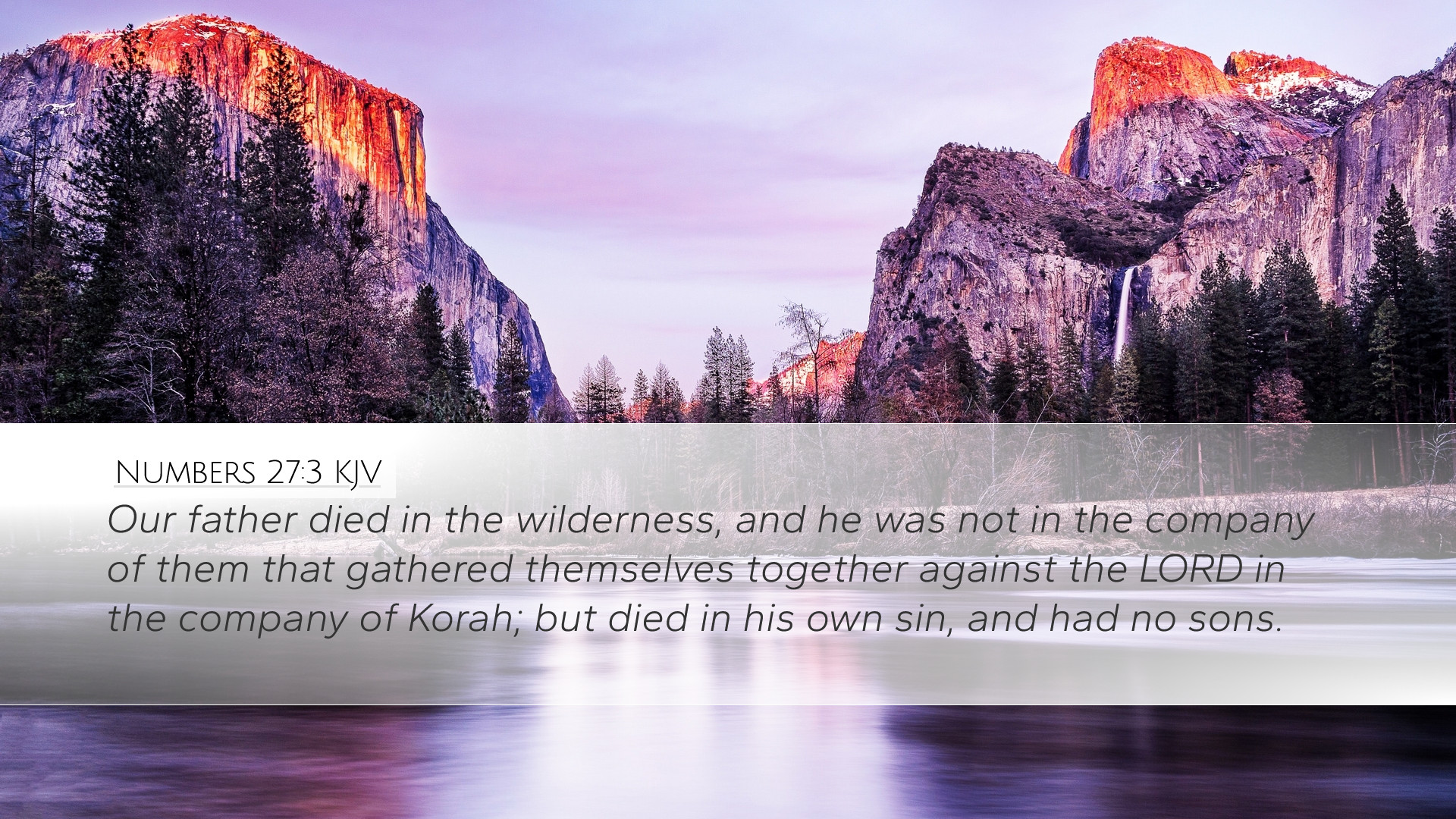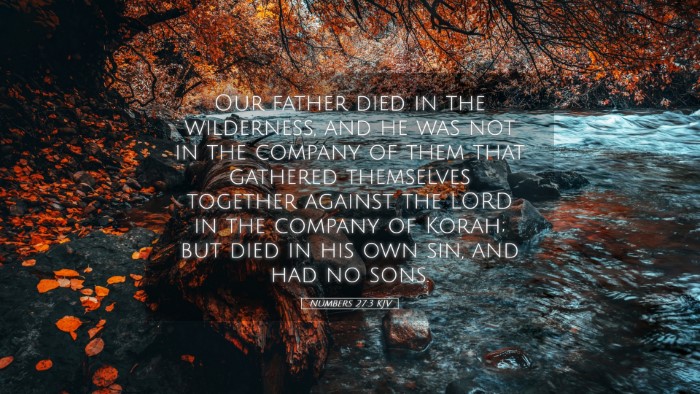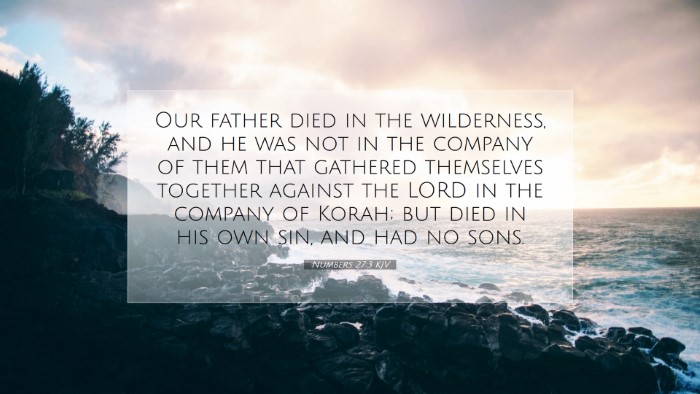Numbers 27:3: "Our father died in the wilderness, and he was not in the company of those who gathered together against the Lord in the company of Korah, but he died for his own sin, and he had no sons."
This verse is pivotal in the account of the daughters of Zelophehad, which opens discussions about inheritance rights and the role of women in the community of Israel. We can draw significant insights from various public domain commentaries.
Context and Background
The context of Numbers 27 centers around the transition of leadership and the territorial allotments of the Israelites as they are about to enter the Promised Land. The daughters of Zelophehad—Mahlah, Noah, Hoglah, Milcah, and Tirzah—present a compelling case regarding their inheritance, drawing attention to issues of justice and equity within the covenant community.
Insights from Matthew Henry
Matthew Henry provides a thorough exposition on this passage, noting that the daughters of Zelophehad approached Moses with a deep understanding of their father's situation. They clearly acknowledge that their father died not as a result of rebellion against God, but rather for his own personal sin, and thus, they seek justice. This admission highlights:
- Recognition of Accountability: Acknowledging that their father's death was due to his own sin reflects a wisdom that holds individuals accountable for their actions.
- Advocacy for Justice: They seek a fair inheritance, underscoring the importance of women in the social and spiritual fabric of Israel.
- Social and Theological Implications: Their plea indicates a progressive understanding of God's justice—one that seeks to correct societal norms that might otherwise disadvantage women.
Insights from Albert Barnes
In his commentary, Albert Barnes emphasizes the significance of the daughters' plea. They are not merely asking for land, but they are also advocating for their rights within a patriarchal society. Barnes notes that their father's death was significant, but it did not eliminate God's promise to His people, which extended to them as well. Key points from Barnes include:
- Legacy of Faithfulness: The daughters' request symbolizes their trust in God's promises. They refuse to accept that their lineage should be cut off due to their father's death.
- Divine Equity: Barnes highlights that God’s justice transcends human traditions. Their successful advocacy might serve to inform God's people about fair treatment and rights.
- Importance of Representation: Barnes suggests they represent an integral aspect of the Israelite community, indicating that all members have a voice in God's covenant promises.
Insights from Adam Clarke
Adam Clarke interprets this verse through the lens of God’s overarching plan for His people. He emphasizes the gravity of the moment as these daughters step forward to articulate their rights. Clarke provides additional emphasis on:
- Collective Memory: The daughters remind the congregation of their father’s faithful service to God, distancing him from the rebellious spirit demonstrated during Korah's rebellion.
- Legal Precedents: Clarke discusses the implications of their request for future generations, indicating a move toward a more inclusive law that incorporates the perspectives of all Israelites.
- Theological Reflections: Clarke argues that their assertion reflects a deeper theological principle—God’s plan for all His people is inclusive, demonstrated here by the inheritance of women alongside men.
Application and Reflection for Today
The message encapsulated in Numbers 27:3 and its surrounding verses is one of inclusion, justice, and advocacy for the marginalized. Today, pastors, students, theologians, and scholars can glean the following lessons:
- Social Justice: The plight of the daughters of Zelophehad serves as a reminder to advocate for justice and equality within the church and society.
- Historical Context: Understanding the historical and cultural context of biblical narratives is crucial for interpreting and applying God's Word in contemporary times.
- Role of Women: This passage challenges the traditional roles assigned to women in various cultures, encouraging a reevaluation of women's contributions in both the faith community and society.
- God’s Justice: The significance of God’s justice extends beyond ritual law, inviting believers to embody and advocate for divine equity in their lives.
Conclusion
Numbers 27:3, while a brief verse, encapsulates profound truths about justice, remembrance, and God’s inclusive promises. The insights from Matthew Henry, Albert Barnes, and Adam Clarke not only illuminate the text but also challenge us to live out principles of justice and community inclusiveness as we reflect on our roles as members of the body of Christ.


